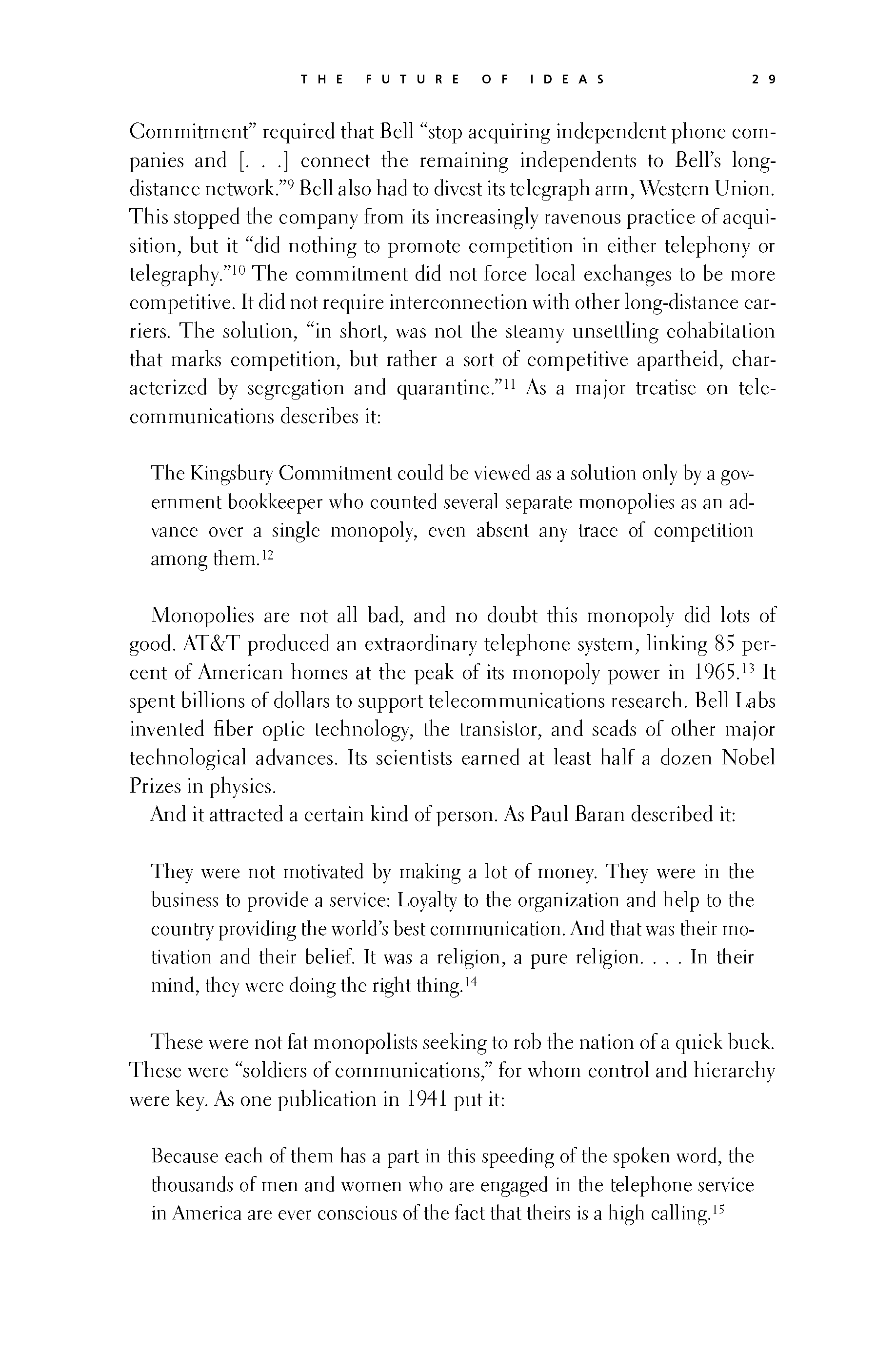 p028 _
-chap- _
toc-1 _
p029w _
toc-2 _
+chap+ _
p030
p028 _
-chap- _
toc-1 _
p029w _
toc-2 _
+chap+ _
p030
Commitment" required that Bell "stop acquiring independent phone com-
panies and [...] connect the remaining independents to Bell's long-
distance network."[3-9] Bell also had to divest its telegraph arm, Western Union.
This stopped the company from its increasingly ravenous practice of acqui-
sition, but it "did nothing to promote competition in either telephony or
telegraphy."[3-10] The commitment did not force local exchanges to be more
competitive. It did not require interconnection with other long-distance car-
riers. The solution, "in short, was not the steamy unsettling cohabitation
that marks competition, but rather a sort of competitive apartheid, char-
acterized by segregation and quarantine."[3-11] As a major treatise on tele-
communications describes it:
____ The Kingsbury Commitment could be viewed as a solution only by a gov-
____ ernment bookkeeper who counted several separate monopolies as an ad-
____ vance over a single monopoly, even absent any trace of competition
____ among them.[3-12]
Monopolies are not all bad, and no doubt this monopoly did lots of
good. AT&T produced an extraordinary telephone system, linking 85 per-
cent of American homes at the peak of its monopoly power in 1965.[3-13] It
spent billions of dollars to support telecommunications research. Bell Labs
invented fiber optic technology, the transistor, and scads of other major
technological advances. Its scientists earned at least half a dozen Nobel
Prizes in physics.
And it attracted a certain kind of person. As Paul Baran described it:
____ They were not motivated by making a lot of money. They were in the
____ business to provide a service: Loyalty to the organization and help to the
____ country providing the world's best communication. And that was their mo-
____ tivation and their belief. It was a religion, a pure religion... In their
____ mind, they were doing the right thing.[3-14]
These were not fat monopolists seeking to rob the nation of a quick buck.
These were "soldiers of communications," for whom control and hierarchy
were key. As one publication in 1941 put it:
____ Because each of them has a part in this speeding of the spoken word, the
____ thousands of men and women who are engaged in the telephone service
____ in America are ever conscious of the fact that theirs is a high calling.[3-15]
[[29]]
p028 _
-chap- _
toc-1 _
p029w _
toc-2 _
+chap+ _
p030